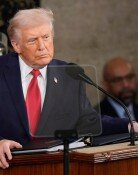[Reporter`s view] Double-faced U.S. trade policy
[Reporter`s view] Double-faced U.S. trade policy
Posted February. 02, 2001 13:24,
![[Reporter`s view] Double-faced U.S. trade policy](https://dimg.donga.com/egc/CDB/ENGLISH/Article/20/01/02/02/2001020215568.jpg)
The George W. Bush administration's trade pressure on Korea is likely to be worrisome. U.S. Trade Representative (USTR)-designate Robert Zoellick expressed his intention to apply trade pressure on Korea, taking issue with the Korean government's bailout funding to Hyundai Electronics Industries (HEI), at his confirmation hearing at the Senate Finance Committee on Dec. 30.
The U.S. government, through the influential International Monetary Fund (IMF), insists on the illegitimacy of the Korea Development Bank's rollover of the corporate bonds of the HEI. USTR-designate Zoellick also suggested that the U.S. administration would work out countermeasures, asserting that the U.S. steel-iron industries are under the great stress with some foreign countries' illegal transactions, although he did not specify Korea.
Following this report, there was an organizational movement here in Korea. The American International Group (AIG) consortium, offering a formal proposal for taking over Hyundai Investment Trust and Securities (HTS) with the condition that the Korean government jointly invests.
The AIG request means that the government should inject public funds into the ailing company in order to eliminate part of the insolvent elements of HTS. Of course, the consortium's proposition runs counter to the U.S. government policy line, rejecting the infusion of public funds into nonviable private enterprises, at a time when there is a controversy over the government's plan to inject the taxpayers' money into the state-invested Korea and Daehan Investment Trust Securities.
However, speculation has it that if the government provides financial aid to Hyundai in compliance with the AIG request, the American government would not raise any objection to it.
Where does this two-pronged U.S. trade policy come from? The government is of the view that its financial support for HEI and steel-iron industries could hurt the competing American counterparts but that the assistance to the HEI could benefit the American industries as a whole.
Today is the globalization era in which no national boundaries exist. But the U.S. foreign economic policy is thoroughly tailored for the interest of its domestic industries. To this end, the U.S. government does not hesitate to adopt inconsistent policies.
A seasoned diplomat cautioned in this regard that the primary task for the overseas diplomatic missions of the advanced countries like the United States and Japan is to report to their home governments matters related to the interests of their enterprises operating in their accredited nations and thus induce their findings to their governments' formulation of the related policy measures. It is not true that the concept of national interest has been excluded from the international economy.
Kwon Soon-Hwal shkwon@donga.com




![[단독]폴란드, 韓 해군 최초 잠수함 ‘장보고함’ 무상 양도 안받기로](https://dimg.donga.com/c/138/175/90/1/wps/NEWS/IMAGE/2026/02/27/133437397.1.jpg)


